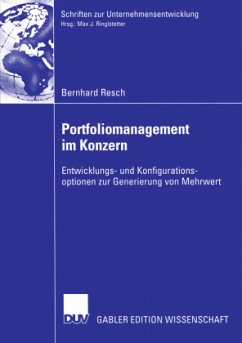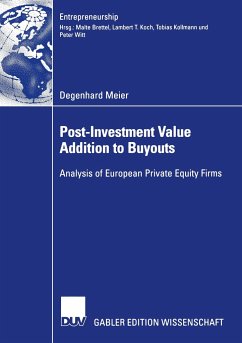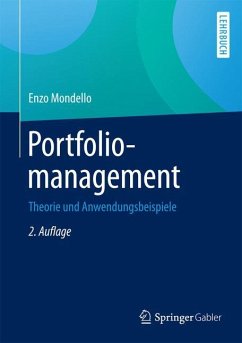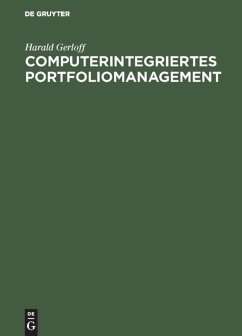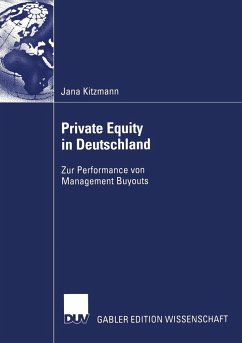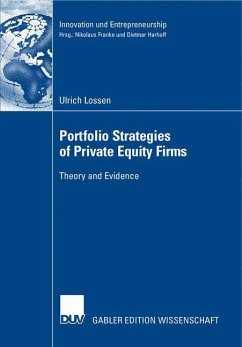
Portfolio Strategies of Private Equity Firms
Theory and Evidence

PAYBACK Punkte
0 °P sammeln!
Driven by the convergence of international ?nancial public markets, investors around the globe are searching for alternative asset classes which provide diversi?cation of their portfolios while earning attractive returns. Private equity, denominating equity investments in privately held companies, promises to ful?ll both criteria. Over the last three decades, the global private equity industry has experienced an enormous growth. Private equity has become an important ingredient in the portfolios of institutional investors, such as banks, insurance companies and pension funds. Despite its incre...
Driven by the convergence of international ?nancial public markets, investors around the globe are searching for alternative asset classes which provide diversi?cation of their portfolios while earning attractive returns. Private equity, denominating equity investments in privately held companies, promises to ful?ll both criteria. Over the last three decades, the global private equity industry has experienced an enormous growth. Private equity has become an important ingredient in the portfolios of institutional investors, such as banks, insurance companies and pension funds. Despite its increasing importance, relatively few are known about the characteristics and specialities of private equity. Therefore, practitioners are turning to researchers for systematic information in order to take sound investment decisions. In his dissertation, Ulrich Lossen contributes to this need of information. Lossen applies advanced econometric methods to a unique data set which he assembled speci?cally for the purpose of this thesis. His analysis focuses on the choice of portfolio strategies by private equity ?rms and the impact of this choice on funds' performance. His research proceeds in three steps. First, Lossen models the trade-o? between diversi?cation and specialization in private equity funds theoretically. Secondly, he analyzes the in?uence of external factors on the choice of private equity ?rms to diversify their portfolios across di?erent dimensions, such as ?nancing stages, industries, and geographic regions. Finally, he examines the impact of such diversi?cation on private equity funds' performance.



